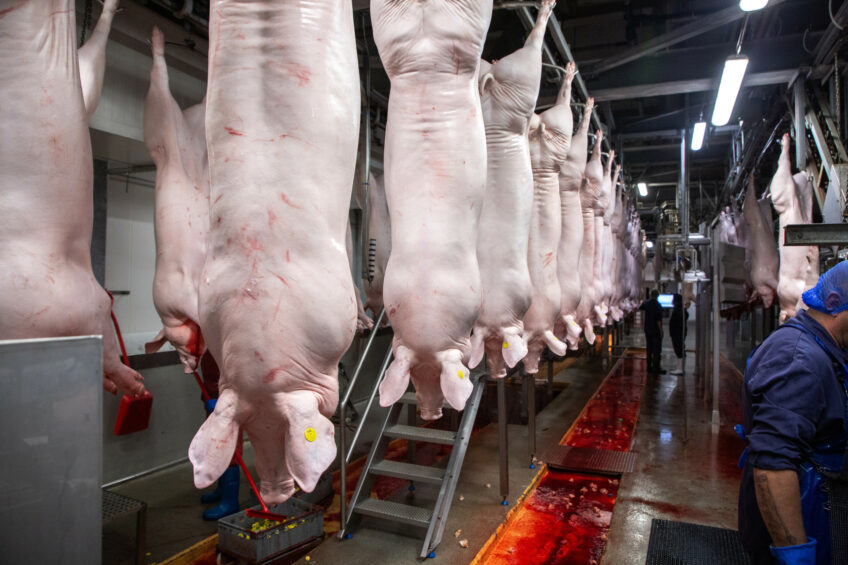USDA research: No Trichinella infection in US commercial pigs

A broad research amongst commercially-raised pigs in the US found that the parasite Trichinella is absent in US pigs.
That message was shared by the US Department of Agriculture (USDA), as researchers of its Agricultural Research Service (ARS) documented the absence of the parasite, which once posed a major food safety risk in the commercial pork supply. The research was published in a recent issue of the peer-reviewed journal Food and Waterborne Parasitology.
Sampling 3.2 million pigs
ARS and the US Animal and Plant Health Inspection Service (APHIS) conducted a national survey by sampling 3.2 million pigs raised under the US Pork Quality Assurance Plus (PQA+) programme and found no animals infected with Trichinella. The results are consistent with international food safety guidelines for Trichinella to be considered a negligible risk for public health.
The US does not perform post-slaughter testing for Trichinella in the pork supply. While modern production systems followed by US pork producers minimise risk of exposure to this parasite, absence of Trichinella infection has never been verified through national testing. ARS researchers pursued this study to ascertain whether the PQA+ programme eliminates the risk of Trichinella exposure in commercial pork, thereby addressing the demands of the US export market.
12 processing locations involved
In the ARS study, a total of 3,208,643 animals across 12 processing locations were tested over a period of 54 months. Parasites were not detected in any of the diagnostic samples, providing a 95% confidence in a Trichinella prevalence of less than 1 in 1,000,000 pigs.
“The surveillance data support the assertion that the US PQA+ programme effectively mitigates risk for Trichinella infection in pigs,” said Dr Benjamin Rosenthal, research leader of the ARS Animal Parasitic Disease Laboratory (APDL). “It is equally important to note that the data could be useful for future food safety decisions, including hazard analysis decisions.”
In total, 11 US pork processing companies, including 30 locations in 12 states, participated in the survey. There are currently more than 63,000 US pork producers certified under PQA+.
The US Pork Quality Assurance Plus (PQA+) programme is an education and certification programme designed by the US pork industry to help pig farmers and their employees continually improve production practices.
The article in Food and Waterborne Parasitology was authored by H. Ray Gamble, Dolores E. Hill, Valsin Fournet, Brandon Adams, Diane Hawkins-Cooper, Jorrell Fredericks, Jovan Aquino, Sonia Agu, Nadya Chehab, Ako Ankrah and Benjamin M. Rosenthal, Animal Parasitic Disease Laboratory (APDL), United States; Maria C. Antognoli, Marta D. Remmenga, Scott Kramer and Lori Gustafson, Animal Plant Health Inspection Service (APHIS), United States.











